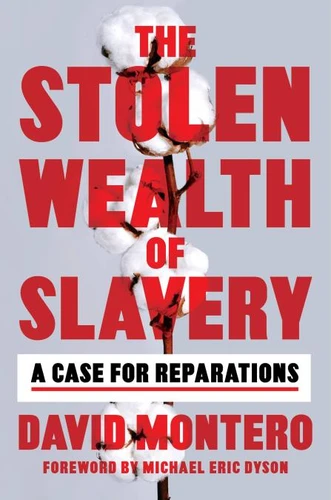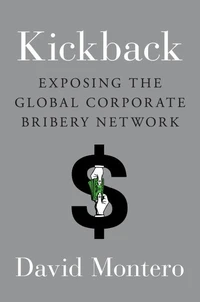The Stolen Wealth of Slavery. A Case for Reparations
Par : ,Formats :
Disponible dans votre compte client Decitre ou Furet du Nord dès validation de votre commande. Le format ePub protégé est :
- Compatible avec une lecture sur My Vivlio (smartphone, tablette, ordinateur)
- Compatible avec une lecture sur liseuses Vivlio
- Pour les liseuses autres que Vivlio, vous devez utiliser le logiciel Adobe Digital Edition. Non compatible avec la lecture sur les liseuses Kindle, Remarkable et Sony
- Non compatible avec un achat hors France métropolitaine
 , qui est-ce ?
, qui est-ce ?Notre partenaire de plateforme de lecture numérique où vous retrouverez l'ensemble de vos ebooks gratuitement
Pour en savoir plus sur nos ebooks, consultez notre aide en ligne ici
- Nombre de pages272
- FormatePub
- ISBN978-0-306-82719-8
- EAN9780306827198
- Date de parution06/02/2024
- Protection num.Adobe DRM
- Infos supplémentairesepub
- ÉditeurLegacy Lit
Résumé
Longlisted for the Massachusetts Book AwardA Publishers Weekly's "Top 10" PickThis groundbreaking book tracks the massive wealth amassed from slavery from pre-Civil War to today, and lays out a case for reparations that shows exactly what was stolen, who stole it, and to whom it is owed. In this timely, powerful, investigative history, The Stolen Wealth of Slavery, Emmy Award-nominated journalist David Montero follows the trail of the massive wealth amassed by Northern corporations throughout America's history of enslavement.
It has long been maintained by many that the North wasn't complicit in the horrors of slavery. The truth, however, is that large Northern banks-including well-known institutions like Citibank, Bank of New York, and Bank of America-were critical to the financing of slavery; that they saw their fortunes rise dramatically from their involvement in the business of enslavement; and that white business leaders and their surrounding communities created enormous wealth from the enslavement and abuse of Black bodies.
The Stolen Wealth of Slavery grapples with facts that will be a revelation to many: Most white Southern enslavers were not rich-many were barely making ends meet-with Northern businesses benefitting the most from bondage-based profits. And some of the very Northerners who would be considered pro-Union during the Civil War were in fact anti-abolition, seeing the institution of slavery as being in their best financial interests, and only supporting the Union once they realized doing so would be good for business.
It is a myth that the wealth generated from slavery vanished after the war. Rather, it helped finance the industrialization of the country, and became part of the bedrock of the growth of modern corporations, helping to transform America into a global economic behemoth. In this remarkable book, Montero elegantly and meticulously details rampant Northern investment in slavery. He showcases exactly what was stolen, who stole it, and to whom it is owed, calling for corporate reparations as he details contemporary movements to hold companies accountable for past atrocities.
It has long been maintained by many that the North wasn't complicit in the horrors of slavery. The truth, however, is that large Northern banks-including well-known institutions like Citibank, Bank of New York, and Bank of America-were critical to the financing of slavery; that they saw their fortunes rise dramatically from their involvement in the business of enslavement; and that white business leaders and their surrounding communities created enormous wealth from the enslavement and abuse of Black bodies.
The Stolen Wealth of Slavery grapples with facts that will be a revelation to many: Most white Southern enslavers were not rich-many were barely making ends meet-with Northern businesses benefitting the most from bondage-based profits. And some of the very Northerners who would be considered pro-Union during the Civil War were in fact anti-abolition, seeing the institution of slavery as being in their best financial interests, and only supporting the Union once they realized doing so would be good for business.
It is a myth that the wealth generated from slavery vanished after the war. Rather, it helped finance the industrialization of the country, and became part of the bedrock of the growth of modern corporations, helping to transform America into a global economic behemoth. In this remarkable book, Montero elegantly and meticulously details rampant Northern investment in slavery. He showcases exactly what was stolen, who stole it, and to whom it is owed, calling for corporate reparations as he details contemporary movements to hold companies accountable for past atrocities.
Longlisted for the Massachusetts Book AwardA Publishers Weekly's "Top 10" PickThis groundbreaking book tracks the massive wealth amassed from slavery from pre-Civil War to today, and lays out a case for reparations that shows exactly what was stolen, who stole it, and to whom it is owed. In this timely, powerful, investigative history, The Stolen Wealth of Slavery, Emmy Award-nominated journalist David Montero follows the trail of the massive wealth amassed by Northern corporations throughout America's history of enslavement.
It has long been maintained by many that the North wasn't complicit in the horrors of slavery. The truth, however, is that large Northern banks-including well-known institutions like Citibank, Bank of New York, and Bank of America-were critical to the financing of slavery; that they saw their fortunes rise dramatically from their involvement in the business of enslavement; and that white business leaders and their surrounding communities created enormous wealth from the enslavement and abuse of Black bodies.
The Stolen Wealth of Slavery grapples with facts that will be a revelation to many: Most white Southern enslavers were not rich-many were barely making ends meet-with Northern businesses benefitting the most from bondage-based profits. And some of the very Northerners who would be considered pro-Union during the Civil War were in fact anti-abolition, seeing the institution of slavery as being in their best financial interests, and only supporting the Union once they realized doing so would be good for business.
It is a myth that the wealth generated from slavery vanished after the war. Rather, it helped finance the industrialization of the country, and became part of the bedrock of the growth of modern corporations, helping to transform America into a global economic behemoth. In this remarkable book, Montero elegantly and meticulously details rampant Northern investment in slavery. He showcases exactly what was stolen, who stole it, and to whom it is owed, calling for corporate reparations as he details contemporary movements to hold companies accountable for past atrocities.
It has long been maintained by many that the North wasn't complicit in the horrors of slavery. The truth, however, is that large Northern banks-including well-known institutions like Citibank, Bank of New York, and Bank of America-were critical to the financing of slavery; that they saw their fortunes rise dramatically from their involvement in the business of enslavement; and that white business leaders and their surrounding communities created enormous wealth from the enslavement and abuse of Black bodies.
The Stolen Wealth of Slavery grapples with facts that will be a revelation to many: Most white Southern enslavers were not rich-many were barely making ends meet-with Northern businesses benefitting the most from bondage-based profits. And some of the very Northerners who would be considered pro-Union during the Civil War were in fact anti-abolition, seeing the institution of slavery as being in their best financial interests, and only supporting the Union once they realized doing so would be good for business.
It is a myth that the wealth generated from slavery vanished after the war. Rather, it helped finance the industrialization of the country, and became part of the bedrock of the growth of modern corporations, helping to transform America into a global economic behemoth. In this remarkable book, Montero elegantly and meticulously details rampant Northern investment in slavery. He showcases exactly what was stolen, who stole it, and to whom it is owed, calling for corporate reparations as he details contemporary movements to hold companies accountable for past atrocities.





